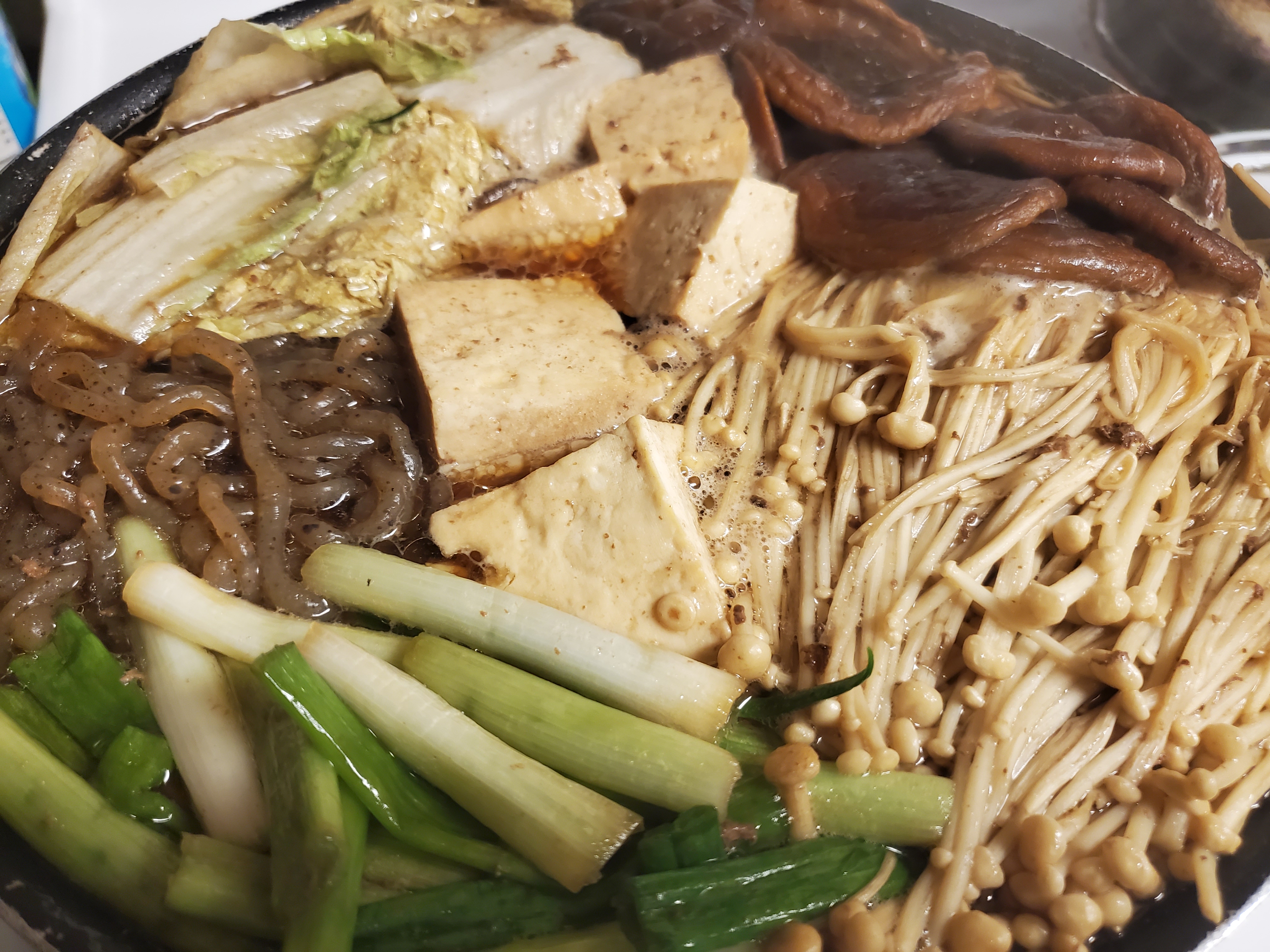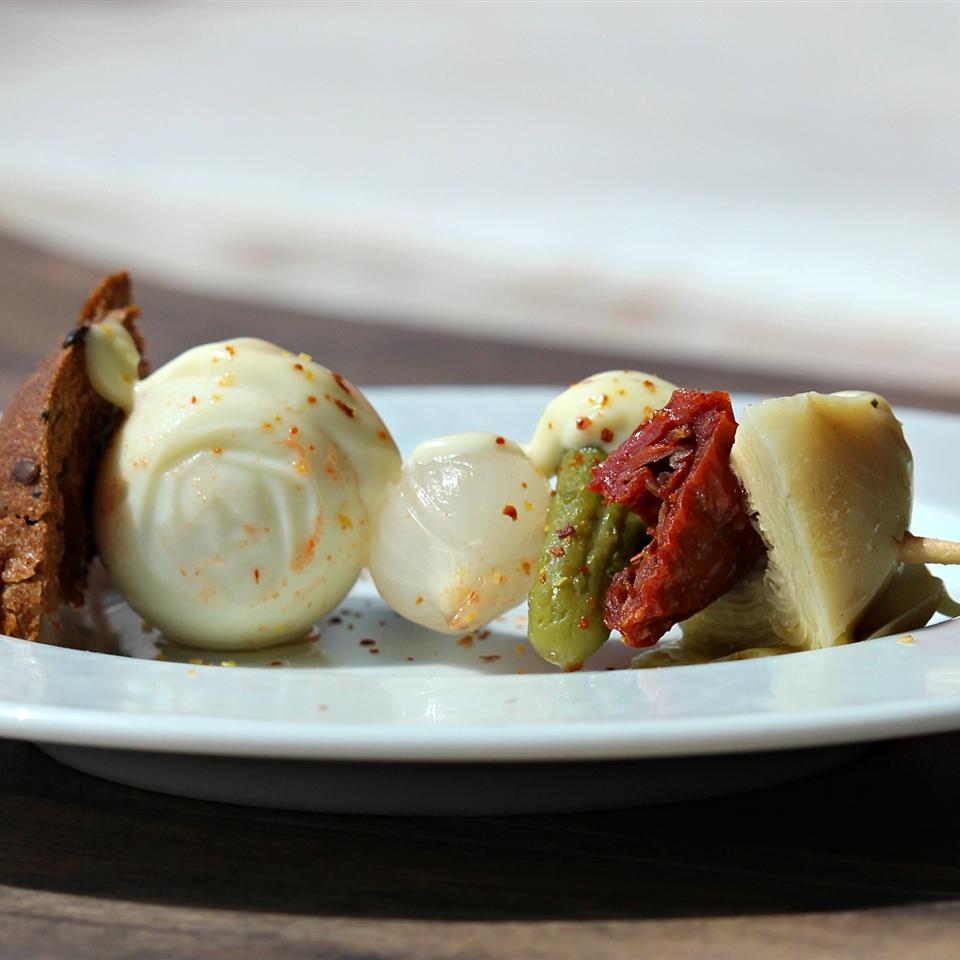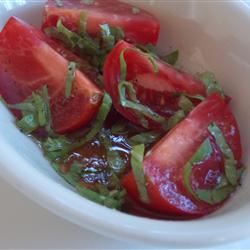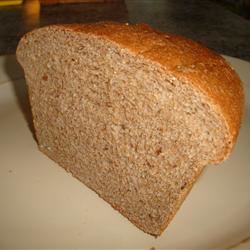Traditional Beef Sukiyaki

Traditional Japanese beef sukiyaki recipe for a one-pot recipe that is cooked at the table. Delicious when dipped in raw beaten egg and eaten with rice.
INGRIDIENT
DIRECTION
Step: 1
Combine water, soy sauce, sugar, and sake in a bowl to make broth.
Step: 2
Arrange beef, tofu, Chinese cabbage, yam noodles, shiitake mushrooms, enoki mushrooms, and green onion on separate plates on the table.
Step: 3
Heat oil in an electric skillet or a large skillet set over a hot plate at the table. Add beef slices; cook and stir until browned, about 1 minute. Pour in some broth; bring to a boil. Stir in tofu, cabbage, noodles, shiitake mushrooms, enoki mushrooms, and green onion; simmer until softened, about 5 minutes.
Step: 4
Ladle cooked sukiyaki mixture into serving bowls. Replenish broth in the skillet.
Step: 5
Crack each egg into a small bowl and beat lightly. Serve sukiyaki alongside eggs for dipping.
NUTRITION FACT
Per Serving: 645 calories; protein 40.3g; carbohydrates 71.2g; fat 19.6g; cholesterol 234.9mg; sodium 2830.7mg.
The word “stew” can refer to both a dish and a make dishes method. Stewing involves not fast cooking piece of meat, vegetables or beans in a tastefull liquid . It’s same as to braising, instead it does have a few notable differences. The meat is chopped into smaller pieces instead of being processing menu whole , and the liquid all of it covers the essential in a stew as different to a braise’s halfway full . When meat or raw fruit are cooked using this method, the resulting dish is called stew.
Stew has a reputation for making a rib-sticking meal that warms you up on a cold , winter day. It’s right that ; a bowl of classic beef stew can make warming featured food , but stew’s comfort factor more than a way beyond protecting you from the chill . It’s all about those soft and chunks of meat and vegetables, swimming in a thick, ultra-rich gravy. The more they come together make the ultimate comfort food, no matter the weather.





